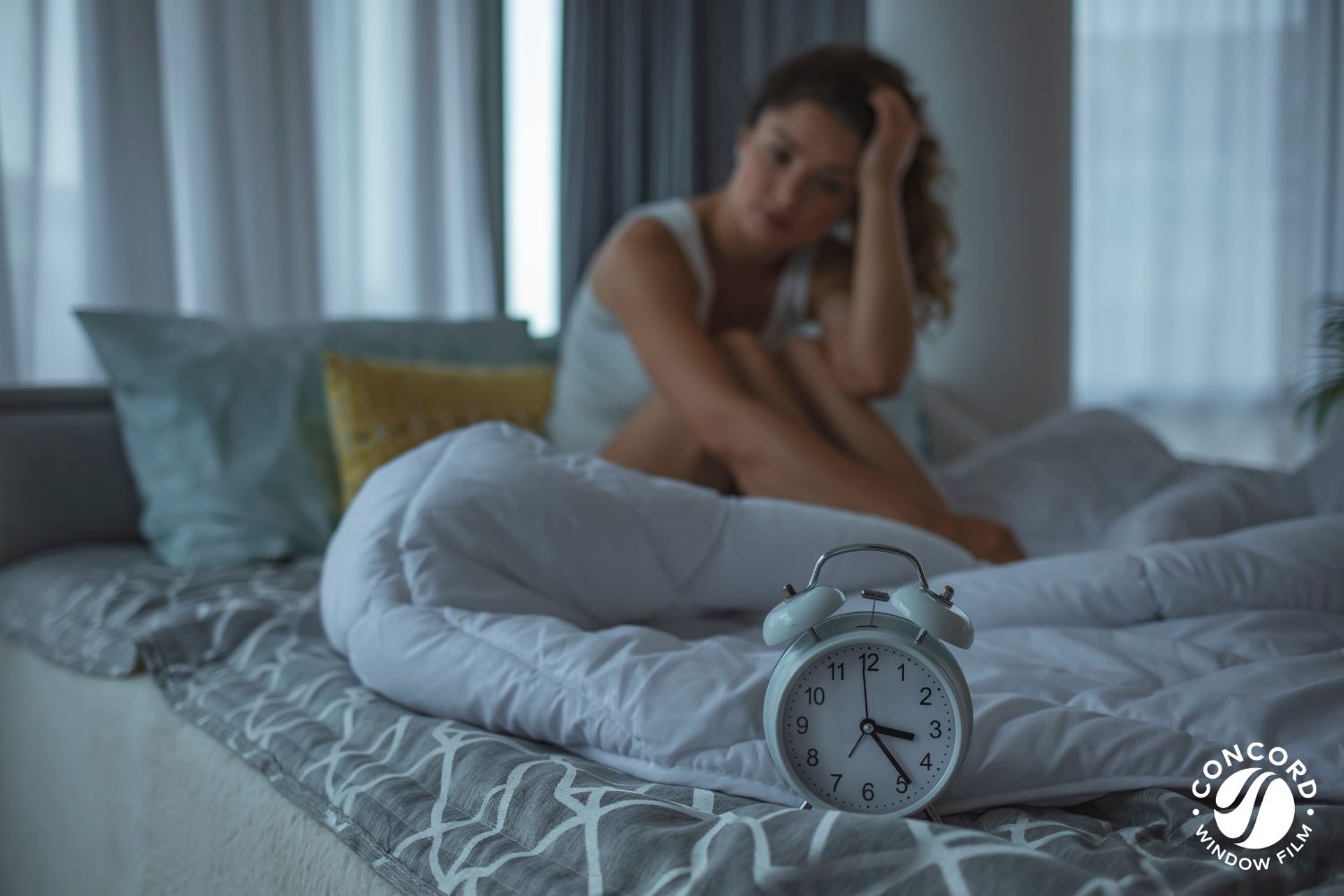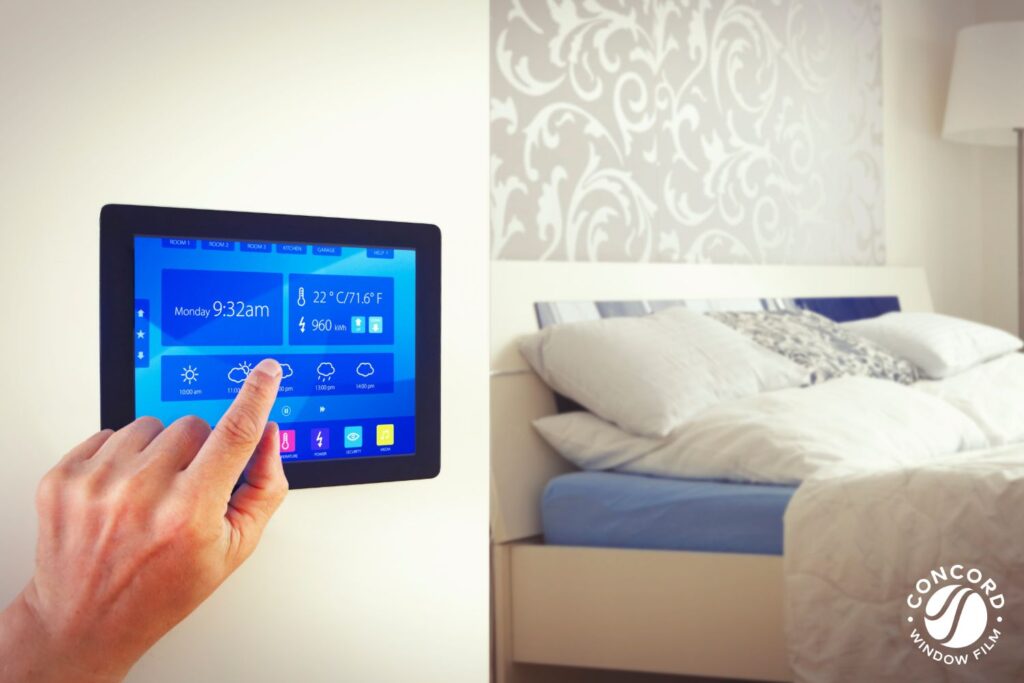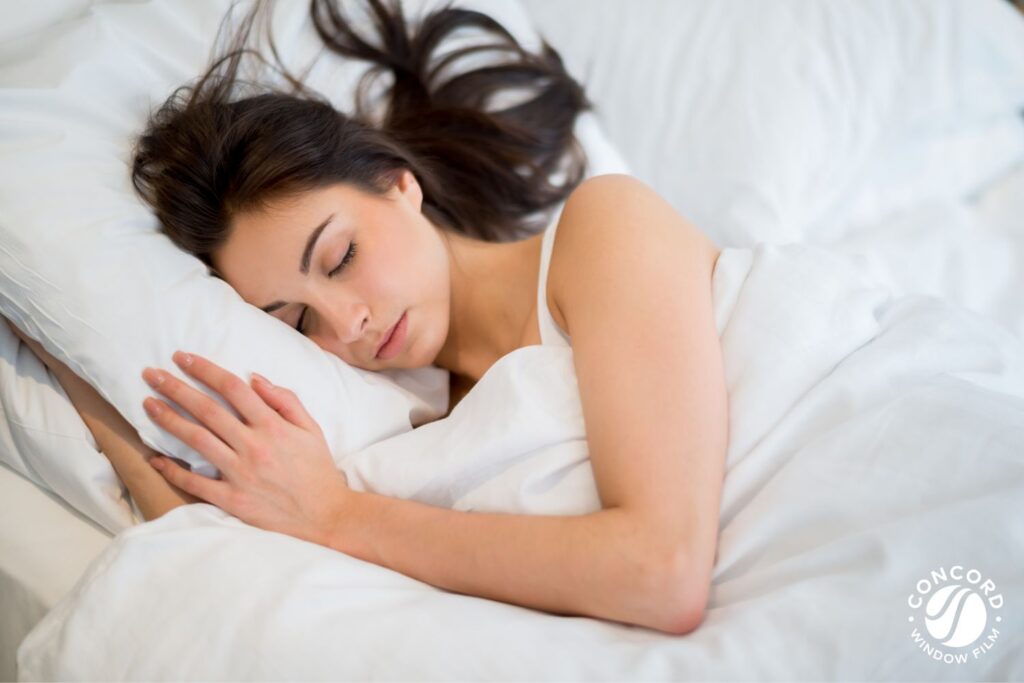
FREE SHIPPING ON PRECUT KIT ORDERS OF $100 OR MORE

Have you ever had a night when you couldn’t fall asleep? Watching the clock as you toss and turn, knowing how you are going to feel in the morning and dreading the morning alarm? We’ve all been there, but if this is something that is more common for you – or you are just looking for ways to optimize your health, we’ve got an essential guide to good sleep hygiene!
Sleep is often overlooked as a necessary part of our daily routine, but it is as important as eating, drinking, and breathing. It is a vital element of our lives that impacts our mood, productivity, and overall health. However, many people struggle to get a restful night’s sleep. The National Sleep Foundation reveals that adults should aim for 7-9 hours of sleep per night, but studies indicate that approximately 35% of adults are not meeting this standard. One possible solution to this problem lies in practicing good sleep hygiene.
The term “sleep hygiene” refers to a series of habits and environmental factors that can promote a better quality of sleep. It’s about creating the optimal conditions to support regular, restful sleep. Think of it as cleanliness for your sleep health, where you’re washing away habits that disturb sleep and introducing practices that help enhance it.
Sleep hygiene is not just about getting adequate sleep; it is also about improving the quality of sleep. Poor sleep can lead to several health complications, including obesity, diabetes, cardiovascular disease, and even decreased life expectancy. Moreover, it can affect your cognitive abilities, leading to a decrease in productivity, concentration, and memory recall. In short, sleep hygiene impacts our physical health, mental health, and quality of life.
Establishing a regular sleep schedule by going to bed and waking up at the same time each day can help regulate your body’s internal clock, known as the circadian rhythm. This routine helps your body know when it’s time to sleep and wake. And building a schedule helps to ensure you get your 7-9 hours of sleep a night. Try to keep the same hours even on the weekend!
Experts are also finding it’s important to get enough sunlight during the day. According to the CDC, your circadian clock is most sensitive to light cycles. So, to help keep you in rhythm, it’s important to get enough sunlight exposure during the day.
Exposure to light stimulates alertness due to your circadian rhythm. You should dim the lights an hour or two before bedtime to signal to your body that its almost time to sleep. You can also consider using a low-wattage bulb for your bedroom lamp so that the room is never too bright.

And if the early morning sun wreaks havoc on your sleep schedule, use blinds, curtains, or window film to keep your bedroom dark. Darkness helps your body produce melatonin, a hormone that promotes sleep. And light can disrupt your sleep waking you before you get your 7-9 hours.
According to the Sleep Foundation, the optimal temperature for sleep is typically 65 degrees Fahrenheit. This is because your body temperature naturally drops at night, and a cool room temperature can help you fall asleep and stay asleep. A study published in the journal Sleep found that people who slept in a cool room (65 degrees Fahrenheit) had better sleep quality than those who slept in a warmer room (75 degrees Fahrenheit).

You also want your bedroom to be quiet for optimal sleep. Noise alerts your body that something is going on and keeps it in an alert state which may prevent your from sleeping or from remaining in deep sleep.
The American Heart Association has found the people who are exposed to traffic noise consistently over periods of time have a higher chance of developing diabetes and heart disease. Experts speculate this could be in part due to poor sleep quality.
If you live in a city or with close neighbors, consider wearing ear plugs to bed or purchasing a white noise machine to drown out conversations or other sounds.
According to the National Sleep Foundation, the average person spends about one-third of their life in bed. This translates to approximately 33% of our total lifespan! And this percentage can vary slightly depending on individual sleep patterns and lifestyle.
Considering the amount of time you spend asleep, it makes sense to invest in a quality, comfortable mattress, pillows, and bedding. Here are some things to consider:
Opt for a mattress that provides the right level of comfort for your preferences. This can vary from person to person, as some prefer a firm mattress, while others prefer a softer one. Consider your sleeping position and any specific comfort requirements you may have.
Look for a mattress that offers proper support for your body, particularly for your spine. It should help maintain natural alignment and prevent pressure points. The level of support needed can depend on your body weight, shape, and personal preference.
Assess the durability and longevity of the mattress. Check for high-quality materials and construction that can withstand regular use over time. Read reviews or look for reputable brands known for producing durable mattresses.

If you share your bed with a partner, consider a mattress with good motion isolation. This feature helps minimize the transfer of motion when one person moves, allowing for undisturbed sleep.
Some mattresses offer features or materials designed to promote better temperature regulation. If you tend to sleep hot or cold, consider a mattress that can help maintain a comfortable sleep temperature.
Over time, mattresses can accumulate wear and tear, lose their supportiveness, and develop sagging or unevenness. These factors can impact the quality of your sleep and overall comfort. Additionally, hygiene and allergen concerns may arise as mattresses accumulate dust mites, allergens, and bacteria over time. A general guideline is to consider replacing your mattress every 7 to 10 years.
Napping can be bad for sleep if it is done too late in the day or if it is too long. If you choose to nap during the day, limit yourself to about 20 to 30 minutes and make it during the mid-afternoon. Napping can interfere with your body’s natural sleep-wake cycle and make it harder to fall asleep at night.
While there is no consensus around whether it is better to sleep on an empty stomach or a full one, most experts agree there are some things to avoid. Don’t have a large meal before bed. Large meals can make you feel uncomfortable or cause acid reflux when you lay down. Don’t drink caffeine or alcohol close to bedtime. Both of these dehydrate the body and can disrupt your sleep cycle and cause you to wake during the night.
Regular physical activity is good for sleep for a number of reasons. It can help to:
Melatonin is a hormone that helps to regulate sleep-wake cycles. Exercise can help to increase the production of melatonin, which can make it easier to fall asleep at night.
Stress can make it difficult to fall asleep and stay asleep. Exercise can help to reduce stress, which can make it easier to fall asleep and stay asleep.
Poor sleep can contribute to depression and anxiety. Exercise can help to improve mood, which can make it easier to fall asleep and stay asleep.
Obesity is a risk factor for sleep disorders. Exercise can help with weight management, which can reduce the risk of sleep disorders.
Cardiovascular disease is a risk factor for sleep disorders. Exercise can improve cardiovascular health, which can reduce the risk of sleep disorders.

The American College of Sports Medicine (ACSM) recommends that adults get at least 150 minutes of moderate-intensity aerobic activity or 75 minutes of vigorous-intensity aerobic activity each week. The ACSM also recommends that adults do muscle-strengthening activities that work all major muscle groups on two or more days a week.
It is important to note that exercising too close to bedtime can interfere with sleep. The ACSM recommends that adults avoid exercising within three hours of bedtime.
Stress can make it difficult to fall asleep. Recapping the day in your head when you lay down to go to sleep is common as you assess your day and look forward to what’s to come. It’s important not to get in the habit of worrying or having the mind get too active right before bed. This can cause stress and stress hormones which will prevent your body from relaxing into sleep.
Techniques for stress management like meditation, deep breathing, and yoga can help you get the rest you need. Establishing a pre-sleep ritual, like reading or taking a warm bath, can signal your body that it’s time to sleep.
Electronics are bad before bed because the blue light emitted from their screens can interfere with sleep. Blue light is a type of light that is found in sunlight and in many electronic devices. It has a short wavelength and can suppress the production of melatonin, a hormone that helps to regulate sleep-wake cycles. When you use electronic devices before bed, the blue light from the screens can make it harder to fall asleep and can reduce the quality of your sleep.
Here are some of the reasons why using electronics before bed can be bad for your sleep:
Melatonin is a hormone that helps to regulate sleep-wake cycles. When you use electronic devices before bed, the blue light from the screens can make it harder to fall asleep and can reduce the quality of your sleep.
The bright lights and the constant stream of information from electronic devices can be stimulating and can make it difficult to relax and fall asleep.
The use of electronic devices can be addictive and can make it difficult to break the habit of using them before bed.
If you are having trouble sleeping, it is best to avoid using electronic devices for at least 30 minutes before bedtime. You may also want to consider using a blue light filter on your devices or turning on the night mode setting. These settings can help to reduce the amount of blue light that is emitted from your devices.
Good sleep hygiene can significantly improve your sleep quality and duration. However, if you have tried these strategies and still have persistent problems falling asleep, staying asleep, or feeling excessively sleepy during the day, it may be time to seek professional help. Conditions like insomnia, sleep apnea, or restless leg syndrome can interfere with your sleep and may require medical intervention.
Understanding and practicing good sleep hygiene is a vital component of maintaining optimal health and well-being. Incorporating these tips into your routine won’t guarantee overnight changes, but consistency is key. Over time, these habits can significantly improve your sleep quality and, in turn, enhance your mood, energy levels, productivity, and overall quality of life. Remember, a good night’s sleep is not a luxury—it’s a necessity. Let’s make it a priority!
And if you want to try window film to help keep your room dark and cool – Concord’s ComforTech Ceramic Series film has you covered. With easy-to-install kits and a separate tool kit with professional installation tools, you can save money installing it yourself and start sleeping better!